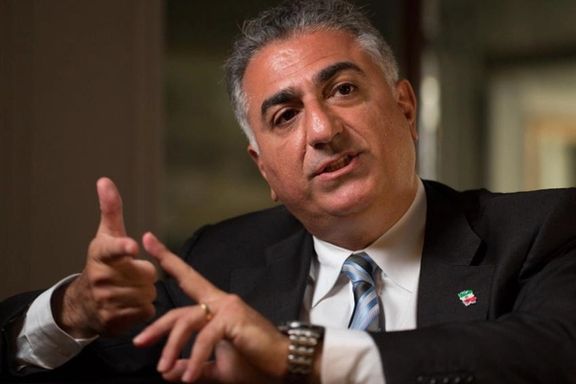In an interview with Iran International, Pahlavi addressed the Hezbollah-Israel conflict, saying, "The Islamic Republic’s adventurism and provocations have destabilized the Middle East and are the primary cause of the current situation."
Speaking on the sidelines of the National Union for Democracy in Iran (NUFDI) conference, Pahlavi emphasized that Iran’s interference in neighboring countries and its support for proxy groups have forced regional powers like Israel and Saudi Arabia into direct confrontation with Iran's rulers.
The conflict escalated in October 2023 when Israel launched a large-scale military operation in the Gaza Strip following a surprise Hamas invasion of its territory that killed over 1,000 civilians. In response, Iran-backed groups, including Hezbollah in Lebanon and the Houthis in Yemen, joined the fight in support of Hamas. These ongoing clashes have further destabilized the region.
Pahlavi urged the international community to stop "investing in negotiations with a bankrupt regime" and instead support the Iranian people’s push for freedom. This call echoes demands from the "Woman, Life, Freedom" movement, which gained momentum after the mass protests in 2022.
He argued that the fall of the Islamic Republic would eliminate the nuclear and terrorism threats in the Middle East, leading to fundamental change across the region.
Recent reports from the International Atomic Energy Agency (IAEA) confirm that Iran continues its high-enrichment uranium program, which could lead to the production of nuclear weapons. Iran’s stockpile of 60% enriched uranium now stands at 164.7 kilograms, a critical threshold since it can quickly be further enriched to 90%, the level required for nuclear arms.
At the NUFDI conference, Pahlavi unveiled the "Iran Prosperity Project," a plan designed by experts to guide Iran’s future after the fall of the Islamic Republic. He highlighted the stark economic contrast between Iran and South Korea, noting that before the 1979 revolution, Iran's per capita GDP was double that of South Korea, but it has since plummeted to one-seventh of South Korea's. "Iran should have become the South Korea of the Middle East, but instead, it has turned into the North Korea of the region," he said.
Prince Reza Pahlavi also warned that Iran is falling behind in the digital and AI revolutions, putting the country’s future at risk. He outlined the first phase of the "Iran Prosperity Project," which focuses on "financial and social stabilization" during the first 100 days after the fall of the Islamic Republic. The second phase will address political and legal stabilization, while the third phase will focus on long-term economic reconstruction and creating investment opportunities.
He called for the full participation of all citizens in the post-Islamic Republic economy, stressing the need to remove barriers to women’s participation in the workforce.








